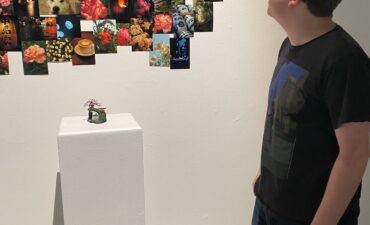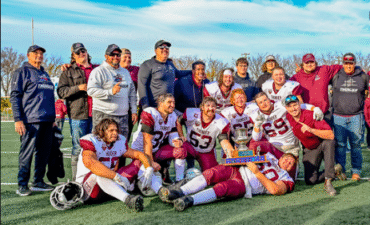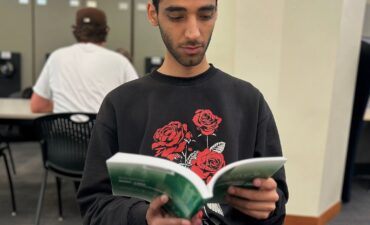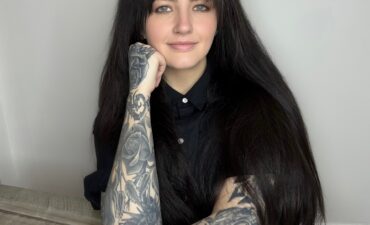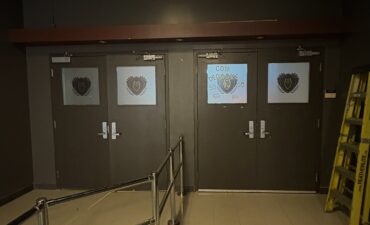
Megan Kaiswatum, a student at First Nations University of Canada, wants the diversity of queer experiences to become more visible in Regina.
“It’s important for queer visibility to be available on campus because Saskatchewan is a pretty conservative, right-wing province,” she said. “A lot of the issues stem around white people and their concerns, and people who are marginalized, like Indigenous people and queer people, don’t seem to have their issues taken seriously.”
That’s why Kaiswatum attended the 12th Canadian University Queer Students Conference (CUQSC), a gathering of dozens of LGBTQ Canadian students and campus organizers at the University of Regina Feb. 20 – 24. “CUQSC 2020: challenging harm” focused on how queer communities can stand against homophobia and transphobia as well as racism, ableism and other prejudices.
With this theme in mind, Jacq Brasseur, executive director of the UR Pride Centre for Sexuality and Gender Diversity (UR Pride), says they deliberately chose conference speakers who could address these issues from close to home.
This year’s local keynote speaker was Mirtha Rivera, a musician, writer and activist who came to Saskatchewan as a political refugee from Chile in 1975. The national keynote was given by two-spirit trans woman Arielle Twist, an author and multidisciplinary artist from George Gordon First Nation who now lives in Halifax.
“The past couple CUQSCs that have happened brought in American speakers as their keynotes,” Brasseur said. “I think there are pros to that – they brought in a lot of delegates, people were excited to go to the conference to see people they thought were famous – but prioritizing Indigenous people, queer theorists and queer folks from the land that we call Canada is really important because it contextualizes us.”
Rivera’s keynote focused on how to challenge harm to and within queer communities by learning from one another and rejecting “divide and conquer” tactics.
“I’m talking about what society is giving us as morals – how repressive it is, how colonized we are,” Rivera said. “What are we going to do to relate to one another? We need to be aware that we are colonized and people with privilege have to learn how not to use their privilege and their power over people who have been left aside because they are different.
“We all have to work together and make a commitment that this work doesn’t finish – it’s a lifetime and we can’t stop. We have to protect our youth, we have to protect our children and we have to protect the people who open the way for us.”
Conference attendee Mike Hooves, office coordinator and Show + Sale coordinator for the Alberta University of the Arts Students’ Association, reflects on what the theme of CUQSC 2020 – challenging harm – means for them. Video by Julia Peterson.
A secondary theme of the conference was the future of CUQSC itself, which has been uncertain since the last CUQSC was held at Dalhousie University in 2016.
Brasseur says they had to get creative after the conference’s former organizational strategy fell through over the last four years.
“CUQSC used to be held annually,” they said. “And then every year the conference would be bid on by another school or another queer campus group.
“And so, in 2016, a university from New Brunswick had won the bid, but in trying to plan it, it ended up not being able to happen. And the problem with having a conference where the next conference is bid on is that, if even one conference doesn’t happen, you lose the process.”
After expressing interest in reviving the conference, putting together a committee and bringing CUQSC back to Regina, Brasseur is hopeful the conference will persist from here, either on a yearly or biannual basis. This year’s CUQSC included multiple brainstorming sessions on what a sustainable future for the conference might look like. A page on the organization’s website says the bidding process for CUQSC 2021 and 2022 will begin soon.
Conference delegates also presented their academic research, participated in queer media sessions including zine-making and broadcasting and attended academic and activist skill-building sessions over the course of the four day event.


